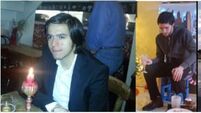Campaigner renews bid to get acne drug banned

Campaigner Jason O’Sullivan has repeated claims his health and his life were ruined by the side effects of RoAccutane.
His case has already been rejected by the Oireachtas Public Petitions’ Committee and the EU Petitions’ Committee.













